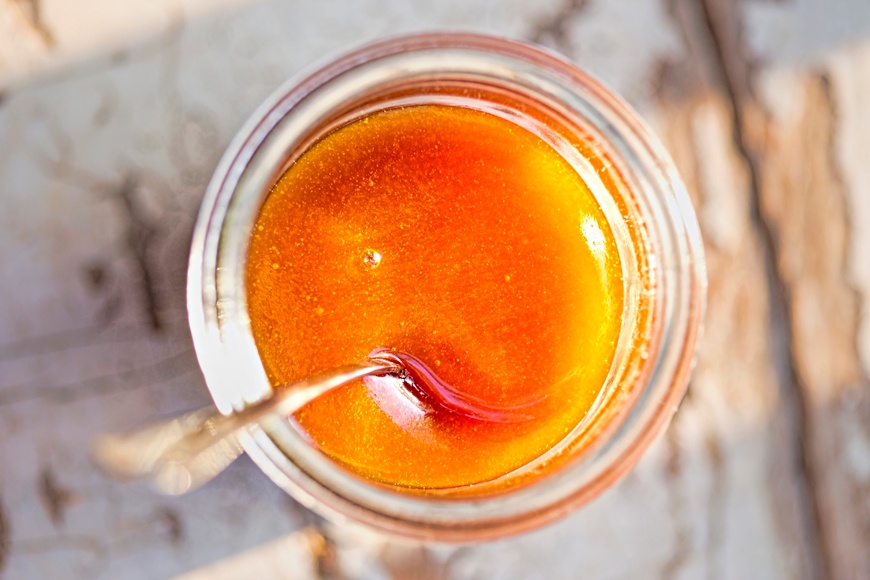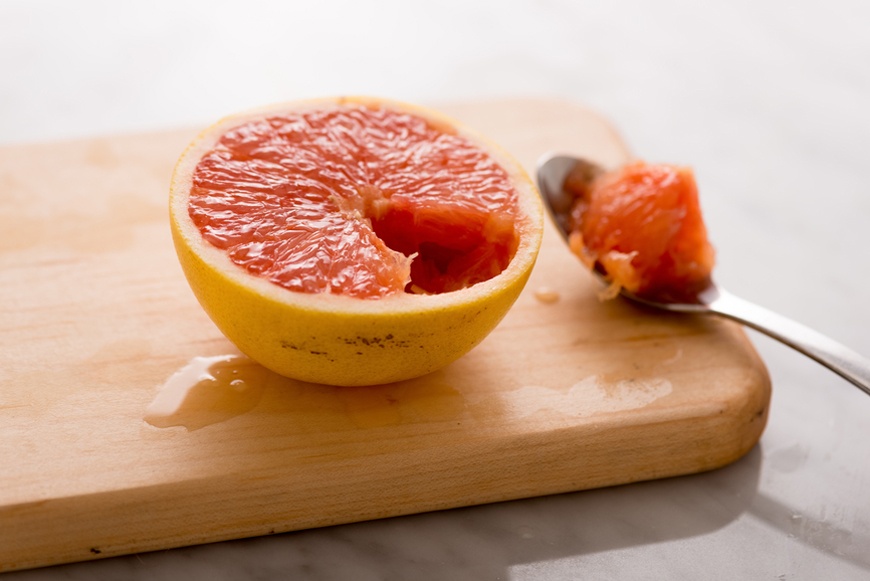The Surprising Allergy-Fighter You Might Already Have in Your Pantry
After enduring a long (long) winter, it can feel like cruel and unusual punishment to be battling headaches, fatigue, and a runny nose while you watch everyone else sip iced matcha in the sunshine. Luckily, the wellness world is *ahem* buzzing about a go-to remedy that could be your savior during this winter-to-spring transition: manuka honey.
Distinct from regular honey (you know, the kind that comes in a bear-shaped bottle), manuka honey is produced by bees in New Zealand pollinating local manuka bushes—and it's already a favorite among stars like Kourtney Kardashian and Sza for glowy skin. But importing it from halfway across the world means it doesn't come cheap. Most brands range in price from between $20 to $40, as opposed to regular raw honey, which is typically between $4 and $15.
To find out if it really works to combat your sniffles—and is worth the splurge—I called registered dietitian Tracy Lockwood-Beckerman and asked her to give it to me straight. Keep reading for everything you need to know.
Scroll down to find out if manuka honey is really the allergy cure it's rumored to be.

The verdict: Manuka Honey can help fight your allergies—and more
Lockwood did a deep dive into the available studies on the medicinal properties of manuka honey and this is what she found: "The active ingredient, MGL methylglyoxal, has been shown to be effective for treatments against nasal mucus—which is [one of the symptoms] you experience when you have allergies," she says. "The direct relationship isn't pegged to allergies, but manuka honey's active ingredient can be an effective treatment for nasal mucus regardless of its source, whether it’s a cold, flu, allergies, or respiratory infection."
In other words: Science suggests that it does help with nasal congestion, which is one of the major symptoms of allergies—but is also a lovely side-effect of its cousins, the flu and colds. "Manuka honey is an anti-inflammatory and some studies say it may regulate the autoimmune response to reduce allergies,” adds Janine Chamley head of marketing and innovation at Melora a (full disclosure) New Zealand manuka honey brand.
"Manuka honey's active ingredient can be an effective treatment for nasal mucus regardless of its source, whether it’s a cold, flu, allergies, or respiratory infection." —Tracy Lockwood-Beckerman, RD
Okay, so it seems to work. But is it really that much better than regular ol' honey? "Honey in general can kill the bacteria in our bodies and in biofilms, which are communities of cells sticking to surfaces in our mucuses," Lockwood says. "Manuka honey can be used medicinally because of that MGL and will go the extra mile, but regular raw honey can help."

{{post.sponsorText}}
So really, it's up to you (and perhaps, how bad your . nasal drip is) whether you want to shell out for the more expensive product. If you decide to go for manuka, Chamley says to look on the label for a Unique Manuka Factor (UMF) score of 10 or higher so you know you're getting a good-quality product. "It's an independently monitored quality trademark and grading system," she explains. Lockwood adds that it's important to also read the ingredients list. "It should say the active ingredients are manuka honey or raw manuka honey," she says. She also points out that manuka honey does naturally contain sugar, so just be mindful of that when thinking about your overall sugar intake.

What to pair with your manuka honey to get the maximum benefits
To really make the most of your medicinal manuka honey use, Lockwood has some tips for the best ways to consume it—and what to pair it with. The first and most obvious way: Use it to sweeten your tea. "You want fluids that will move the mucus along," she says, adding that ginger tea with manuka honey would be one of her top recs for someone with vicious allergies.
"Getting foods with vitamin C is important, too, so another pairing you can do is manuka honey and grapefruit," Lockwood says. Her fave way to enjoy this antioxidant-rich snack is to pop the grapefruit in the broiler with a bit of natural sweetener sprinkled on top for two minutes and then topping it off with honey before digging in.
"Pineapple is another great food to pair manuka honey with if you're fighting allergies," Lockwood says. She explains that the active ingredient in the tropical fruit, bromelain, is an enzyme that helps fight inflammation. "If you're making a homemade dressing, you can mix the manuka honey with pineapple juice and enjoy it that way," she says. Bonus: None of these remedies will leave you with the drowsiness and brain fog that notoriously comes with your allergy or cold meds.
These three habits make seasonal allergies worse. But with a little luck, you might outgrow them all together.
Loading More Posts...